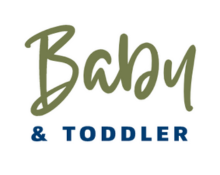
Breastfeeding an unwell baby can provide comfort, hydration, and immune-boosting benefits to help them recover. Here are some considerations and tips for breastfeeding when your baby is unwell:
Seek medical advice: If your baby is unwell, it’s important to consult with a healthcare professional for proper diagnosis and guidance. They can provide specific recommendations based on your baby’s condition.
Continue breastfeeding: In most cases, breastfeeding can and should be continued when a baby is unwell. Breast milk contains essential antibodies and nutrients that can help support your baby’s immune system and aid in their recovery.
Frequent nursing: Your baby’s appetite may increase when they are unwell, so be prepared to breastfeed more frequently than usual. Increased nursing provides hydration and comfort to your baby and helps ensure they are getting the necessary nutrients and antibodies from your milk.
Offer both breasts: Encourage your baby to nurse from both breasts during each feeding session. This helps ensure they are receiving both the foremilk (thinner, hydrating milk) and hindmilk (richer, more calorie-dense milk) to meet their nutritional needs.
Maintain hydration: It’s important to keep your baby well-hydrated, especially if they have a fever or are experiencing symptoms like vomiting or diarrhea. Breast milk provides the necessary fluids to prevent dehydration. Offer the breast frequently, even if your baby is not showing strong hunger cues.
Comfort measures: Breastfeeding offers comfort and soothing for your unwell baby. The close physical contact, warmth, and familiar taste of breast milk can provide comfort during this time. Consider using different breastfeeding positions that may help alleviate discomfort or congestion, such as upright positions to assist with breathing.
Take care of yourself: It’s crucial to prioritize your own well-being and rest when your baby is unwell. Make sure to eat well, drink plenty of fluids, and get enough rest to support your milk supply and your ability to care for your baby.
Medications and breastfeeding: Always consult with a healthcare professional before taking any medications while breastfeeding. They can advise you on the safety of specific medications and provide alternatives if necessary.
Remember, breastfeeding can help support your baby’s immune system and provide comfort during their illness. By responding to their increased nursing needs and offering the breast frequently, you can provide them with the necessary nutrients, hydration, and immune-boosting properties of breast milk to aid in their recovery.
